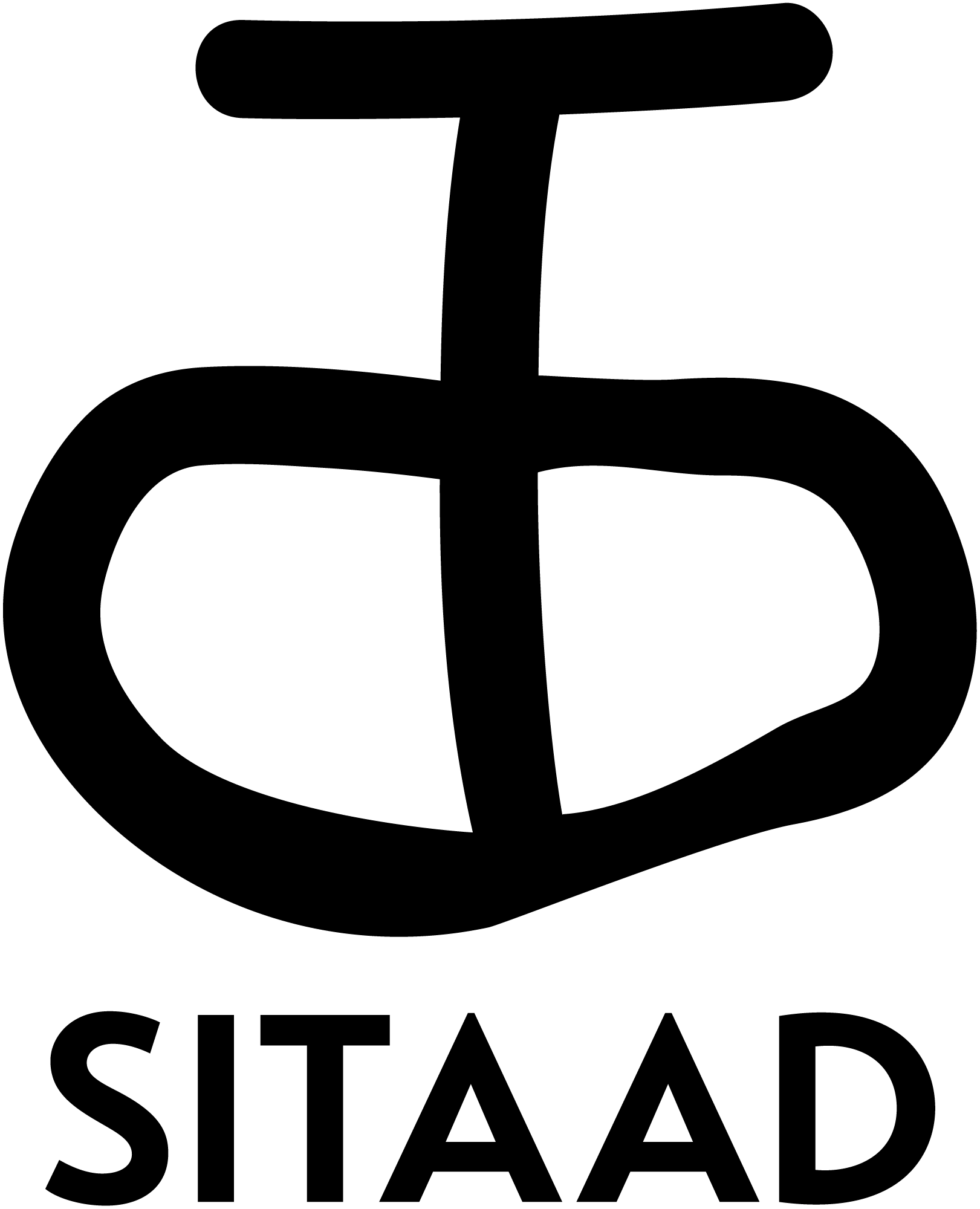
News
Announcement
SITAAD Hiatus
Publish date: June 2025
Since planting the seed of SITAAD in July 2023, we have circulated through spaces, mapped histories, traced connections across archives, and diasporas.
In 2025–26, we step into a deliberate pause. Our attention turns to a forthcoming publication from Studio Sawiro, a work that seeks to reclaim and reframe photographic histories, to inscribe Somali voices where they have been absent, and to expand the editorial life of SITAAD as a platform.
Alongside this, SITAAD is expanding its focus. From the Somali region and its diaspora to Somali, Oromo, Afar, Bajuni, Barawani, and Swahili worlds, this expansion is a deliberate critical strategy. It challenges the fractured ways Somali histories have been framed by colonial borders and nationalist narratives. From 2026, we will engage with overlapping histories, shared practices, and interwoven cultural networks. This work refuses the fixity of colonial maps and affirms the region’s interconnectedness, multiplicity, and collective memory.
We look forward to reconvening in summer 2026.
Enquiries during the hiatus: info.sitaad@gmail.com
Announcement
SITAAD features in Tate Papers No. 36
Publish date: April 2025
SITAAD features in Tate Papers no.36, published April 2025. This issue, explores how histories are built, sustained, questioned or overlooked by institutions, with contributions from artists, researchers and cultural practitioners engaged in rethinking collective memory, archival practices, and the role of national collections.
This journal issue features a record of the talks, panel discussions and performances presented at The Archive is a Gathering Place, a symposium and festival that explored the archive as a place for collaboration, creativity and political practice.
In Letters to Giorgio and Mohamed, SITAAD weaves together historical sound recordings, archival traces, bureaucratic records and critical fabulations relating to the Somali-Italian partisan Giorgio Marincola and to the Somali ethnographic performer and linguist Mohamed Nur. Opening with cassette tapes recorded in Milan and Berlin, the performance is a sonic dialogue between Leyla Degan and Naima Hassan.
Acknowledgments
Curator, The Archive is a Gathering Place, Vasundhara Mathur, Digital Zine designer Rose Nordin, Tate Papers Editorial Team.
The cassette tape presented features SITAAD alongside a host of voices including Antar Mohamed Marincola, Isabella Marincola,Mohamed Nur, Malik Abdi, Billy Fowo, Abdi Roble, Kaamil A. Haider, Khadija Charif, and Jim C. Nedd.
Further details
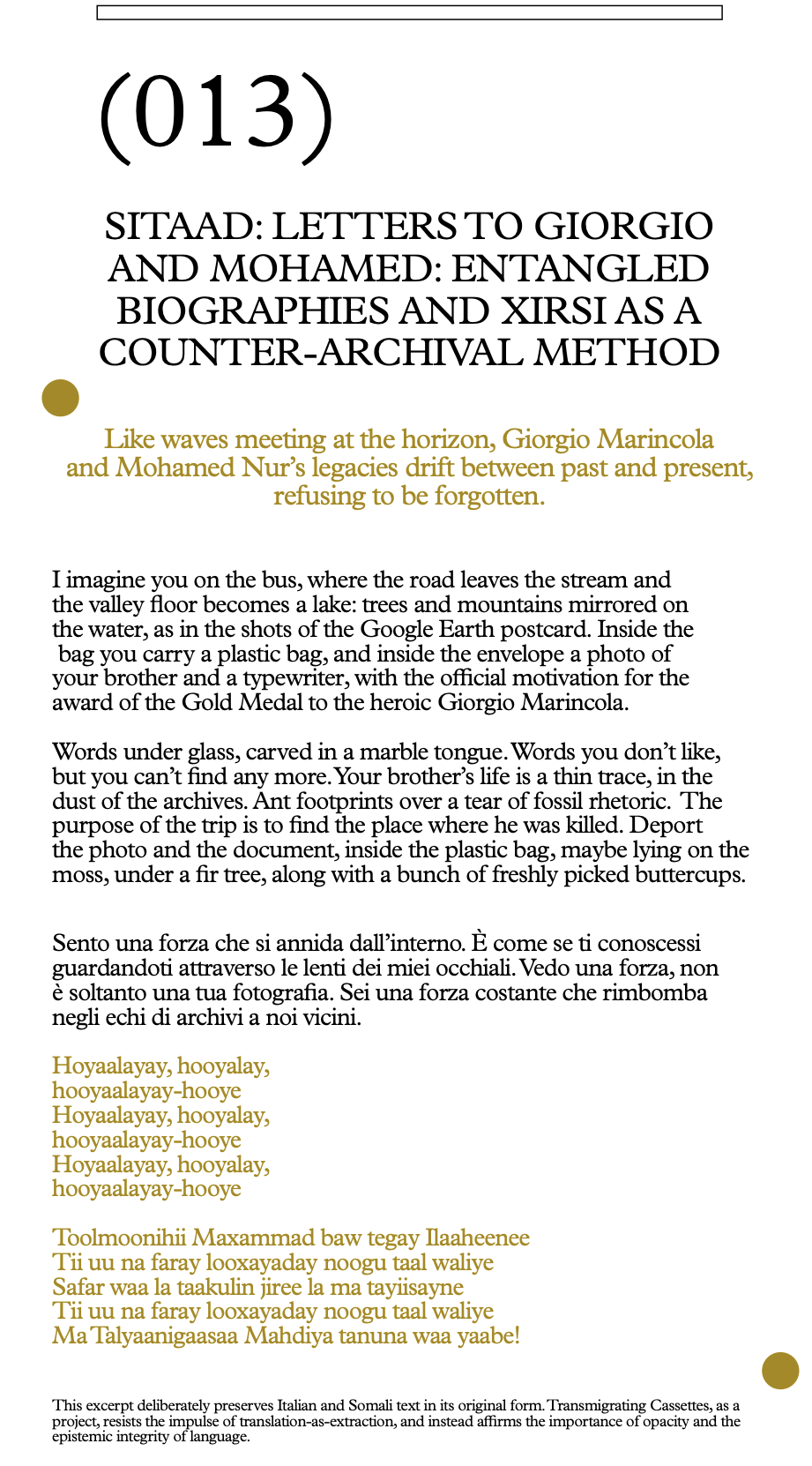
Announcement
SITAAD joins Soomaal House of Art as Affiliate Researchers
Publish date: April 2025
 .
. The Soomaal House Library & Archives Center’s Affiliate Researchers contribute to the Center’s core focus areas: Contemporary Somali Art, the History of Somali Minnesotans, and the History of Somalia & Somalis in the Diaspora. The affiliates program serves as an avenue for the Center to partner with local and international researchers who share a commitment to preserving Somali cultural heritage. Under the theme History of Somalia & Somalis in the diaspora, we are pleased to announce the Affiliate Researchers SITAAD – Leyla Degan (Italy) and Naima Hassan (Germany).
In 2023, SITAAD were recipients of the inaugural Soomaal House Archives Fellowship, supported by the University of Minnesota’s Liberal Arts Engagement Hub Residencies program.
As Affiliate Researchers, SITAAD aim to address the mission of the Soomaal House Archive Fellowship as a site for the investigation of the history of Somalia, the Horn of Africa, and Somalis in the diaspora, utilising the support of Soomaal to activate their first Somali region project. Supporting developments at Soomaal House Library & Archives Center, the Affiliate Researchers will also support the Centre’s 2024-2027 ArchivesSpace Diversity Partnership, which aims to enhance its digital and physical accessibilities.
With the support of the Liberal Arts Engagement Hub Grant, Soomaal House of Art is able to support a new publication with SITAAD which aims at further examining Somali photography studios and family archives, aesthetics in Somali visual culture, vernacular photography, and the broader field of photographic practices. The publication will feature texts from Somali contributors based in international settings and will be designed by Kaamil A. Haider.
Further details
Announcement Contemporary Art Lecture
Ruskin School of Art, University of Oxford
Publish date: February 2025
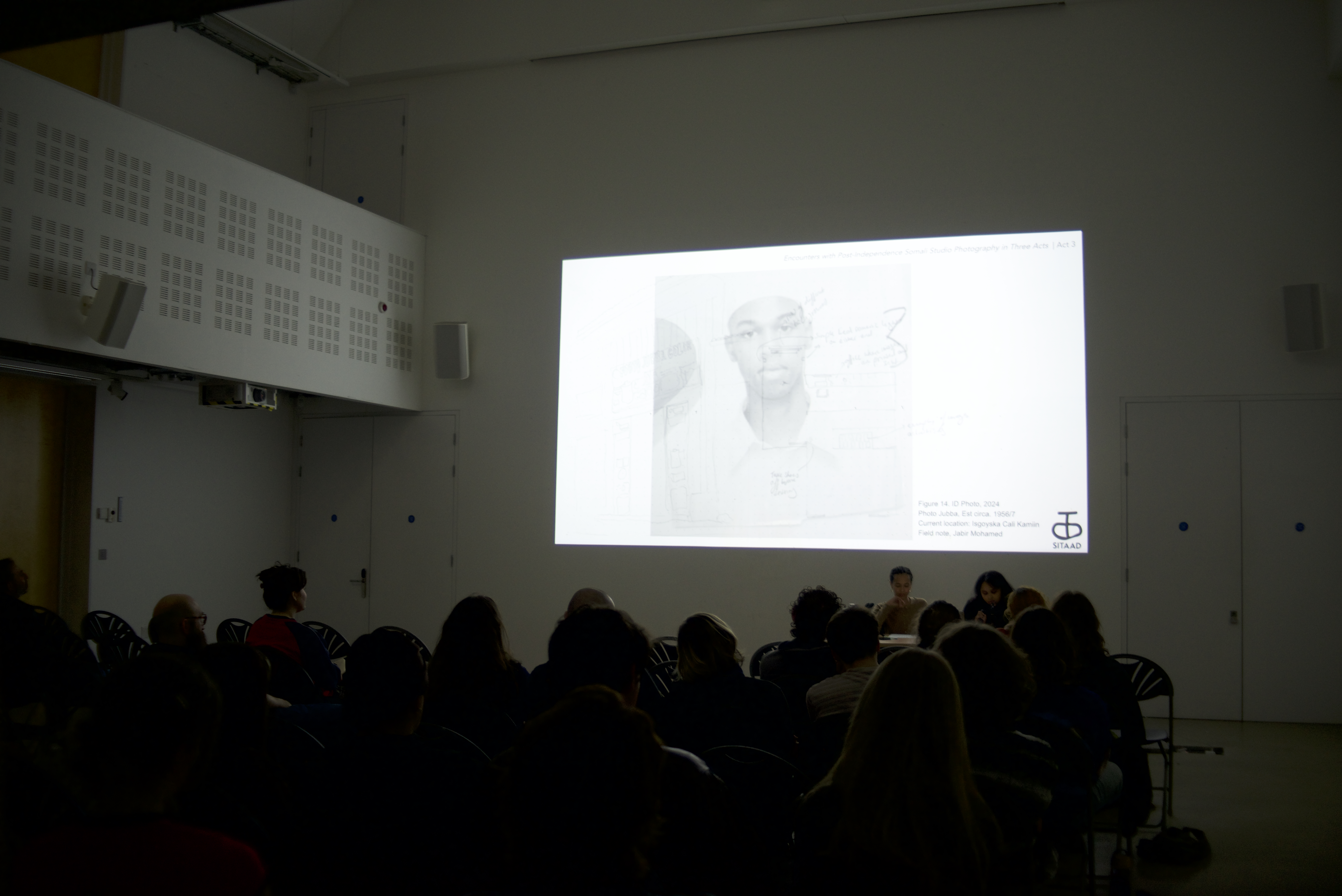
SITAAD, Ruskin Contemporary Art Lecture. Courtesy of SITAAD.
. Encounters with Post-Independence Somali Studio Photography in Three Acts will interrogate the decline of photography studios in Somalia through multiple departures, including the region’s mid 19th century encounter with the first comercially successful form of photography, the daguerreotype.
Presented in the framework of the SITAAD project Studio Sawiro,the talk will trace Somalia’s material entanglement in histories of ‘colonial epistemicide’, the displacement of Somali photography studios following the collapse of the Somali Democratic Republic in 1991, and will conclude with a screening of their film, Oral History Letter I: on the photographic cultures of Mogadiscio.
SITAAD will also host a closed afternoon workshop for students at the Ruskin. Workshop Un-Muting Archives Through Essay Film explores how archival subjects can be repositioned as both spectators and commentators of their own histories, departing from the essay film as a critical and creative methodology for re-animating archives. They will also interact with selected reference films Josephine Baker Watches Herself (2019) by Terri Francis and Ethics of the Cut: Regarding Damaged Photographs from the Anthropological Surveys of Northcote Whitridge Thomas (2024) by Joshua Lean-Segun.
Talks in Contemporary Art
Convened by Jennifer Lauren Martin, in the academic year 2024-25, the Ruskin will host a series of public talks by leading practitioners in international contemporary art. In Hilary term, the programme focuses on research-led and interdisciplinary practices, with themes exploring colonial sites and histories, social infrastructures, and technological fictions.
Date and Time
Thursday, 27 February, 17:00–18:30
Book here
Spaces are limited, and booking is essential. The talk will take place at the Ruskin School of Art, East Oxford, 128 Bullingdon Road, OX4 1QP.
Participation in Useful Archives
Open Resource Centre
Publish date: January 2025
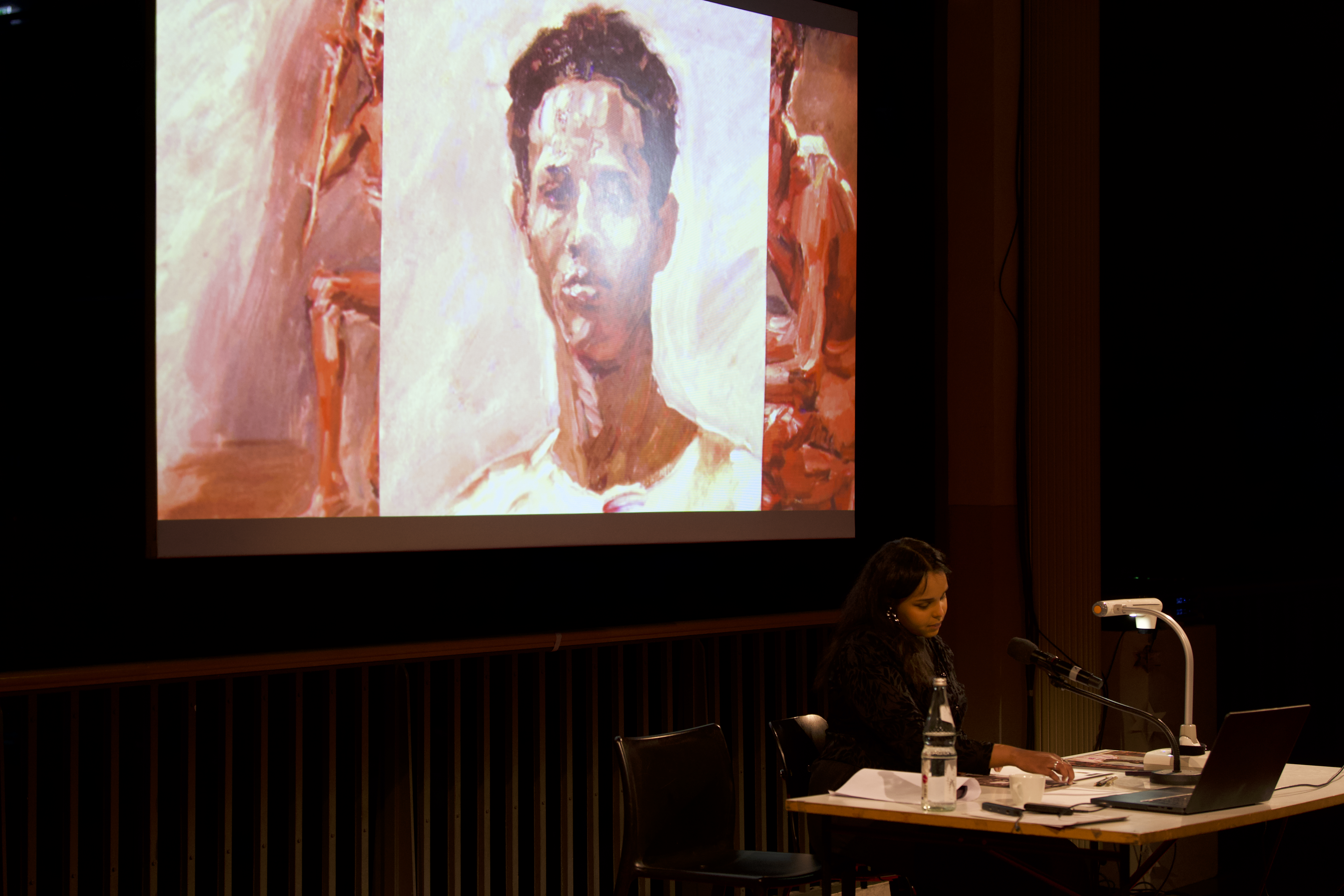
In the framework of the project Transmigrating Cassettes, SITAAD co-founder Naima Hassan presented Notes on a Distributed Person at the Open Resource Center on 17.01.25.
Mohamed Nur was a Somali Völkerschau member and language assistant whose presence is recorded in multiple 20th-century German colonial archives. The lecture-performance Notes on a Distributed Person seeks to reframe Nur’s social, intellectual and political biography, beginning with his internment at Ruhleben camp in 1917 following his arrival to Germany with a Völkerschau ensemble in 1910-11. Drawing from acoustic recordings and written materials, Notes on a Distributed Person enacts a form of liberation through (re)assembly, as Nur’s oral poems recorded in Berlin, his appearance in German impressionist paintings and linguistic contributions at the University of Hamburg are layered together with Somali fractals and Sufi incantations.
The refrain, “Im nächsten Winter will ich reisen (zur See)”— reverberated in the performance as Mohamed Nur is situated as a politically active figure within German and British colonial history. Gradually, projections of Nur progress into an act of Xirsi, a Somali protection system, which enacts a counter-archival strategy that allows for the collective witnessing and meditation of his presence in state archives. The act of (re)assembling opens a public space for contemplating the variegated lives of African prisoners of war recorded during the Königlich Preußische Phonographische Kommission (1915-1918).
Excerpt
If the archive is a prosthetic of the person,
where does the person end?
In the record?
In the voice?
In the silence that surrounds both?
What remains of Mohamed Nur,
suspended in the brittle remains of a phonographic recording?
A face smudged into a German impressionist canvas,
pressed faintly into colonial registers.

Bust Portrait of Somali Hassanó.
Max Slevgolt 1912. Kunstpalast, Düsseldorf.
Colourised.
About
The Open Resource Center (ORC) at Karlsruhe University of Arts and Design (HfG) is acentral facility, developing and establishing a sustainable digital infrastructure for the university. In addition, the ORC works on establishing a culture of autonomous documenting and archiving at the HfG. Archive Day: Useful Archives is curated by ORC curators Mustafa Emin Büyükcoşkun and Zulfikar Filandra.
Archive Day: Useful Archives featuring expert discussions and artistic explorations focusing on the strategies of activating public archives and making them useful for specific communities as well as for wider audiences.
Contributors
Yasmine Eid-Sabbagh (Arab Image Foundation),
Flaminia Fortunato (Stedelijk Museum), Milan Milosavljevic (Academic Film Center Belgrade/Alternative Film Archive)
Armina Pilav (ARchipelago) Krasimira Butseva (The Neighbors),
Naima Hassan (SITAAD).
Full programme
We extend a warm thanks to the curators, contributors and audience.
Film Announcement
Studio Sawiro
Oral History Letter
Publish date: November 2024
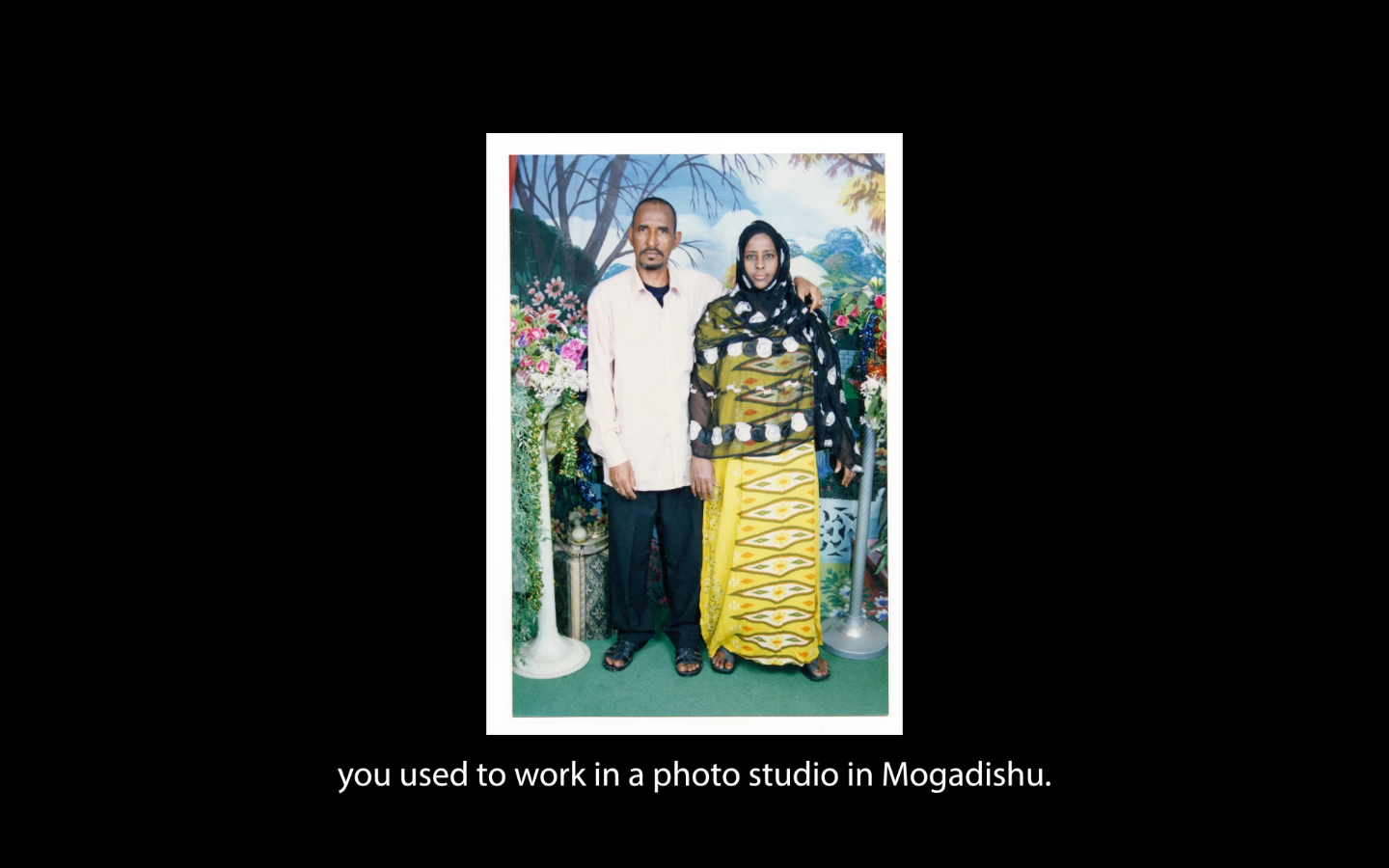

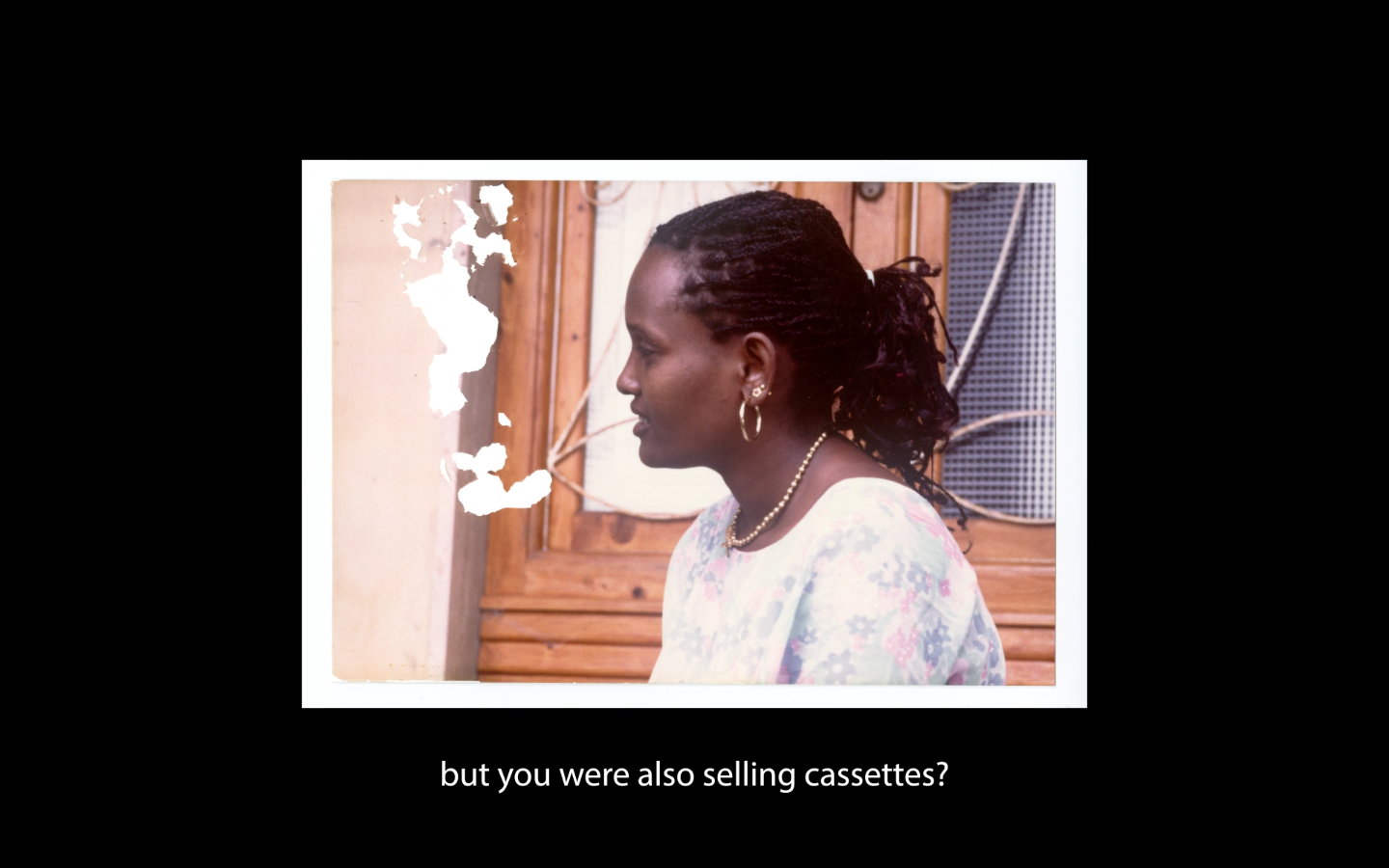
Studio Sawiro
Oral History Letter: Leyla's mother, Hawa S.
on the photographic cultures of Mogadiscio.
© SITAAD Archive
Oral History Letter: Leyla's mother, Hawa S.
on the photographic cultures of Mogadiscio.
© SITAAD Archive
Sawiro is the Somali name for photographs, a loanword of the arabic ﺗَﺼﻮِﻳﺮ. The ongoing artistic-research project Studio Sawiro aims to interrogate the decline of photography studios in historial Somalia, and the dispersal of these archives.
SITAAD present their first video-work on the occasion of the project’s activation.
Oral History Letter: Leyla's mother, Hawa S. on the photographic cultures of Mogadiscio is spoken in Italian between a Somali mother and her Somali-Italian daughter. The entanglement of colonial visuality and the postcolonial desires for self-representation are addressed. The daughter is today a conservator of photography, specialising in analogue formats including the cyanotype. A history of photography is traced in two directions—the matrilineal is prioritised.
Single-channel digital video, colour, sound, 8 min
Film by SITAAD
Leyla Degan
Naima Hassan
Watch here
Participation in Middle Ground
HKW, Hargeysa International Book Fair
Publish date: September 2024
Reimagining the Archive
with Analogue Cassette Tapes in Somaliland
Jama Musse Jama, Hafsa Omer, and Tirsit Yetbare
Moderated by Naima Hassan (SITAAD)
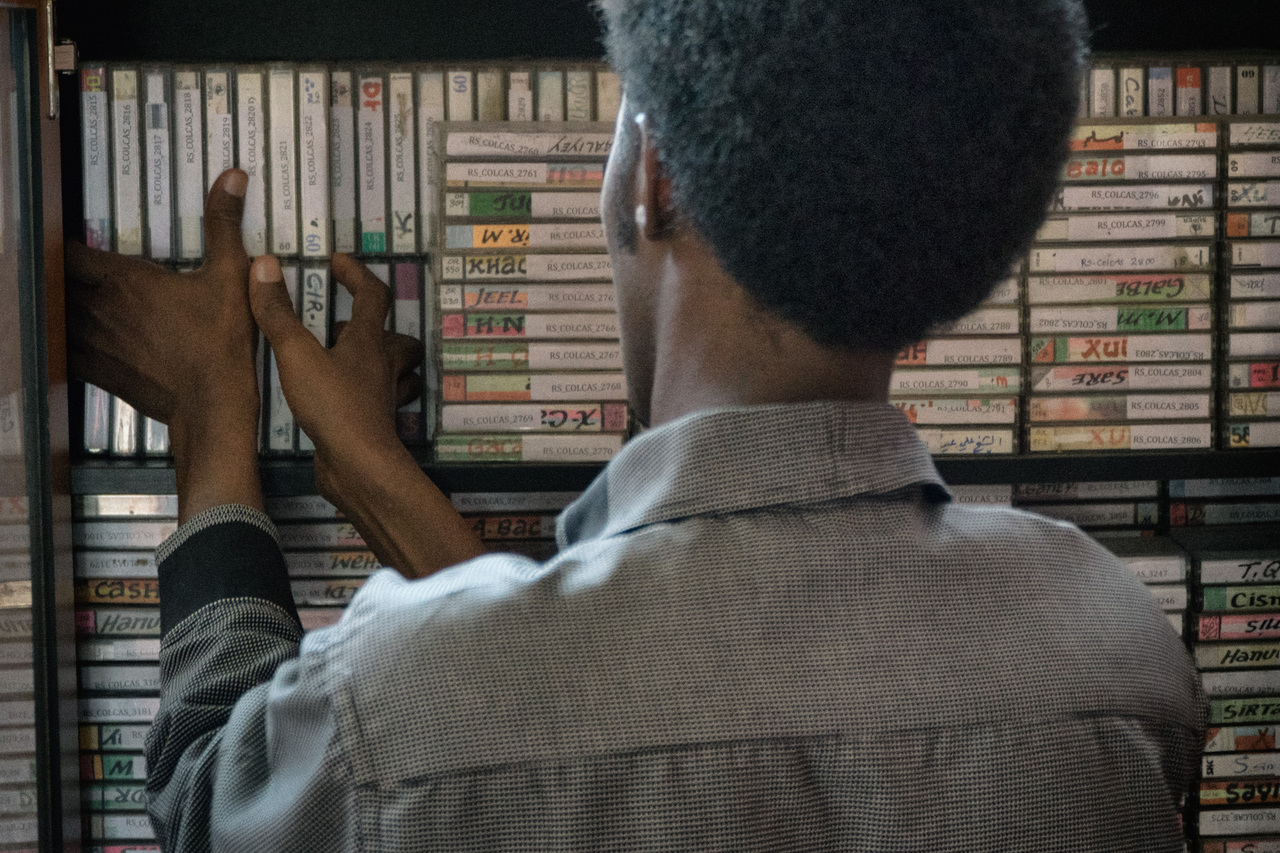
Red Sea Foundation archive © Janto Djassi/Picture Me Different
The emergence of audiocassette recording technology had an indelible impact on the way that Somali literature was documented and disseminated from the 1950s onwards, making audiocassettes one of the greatest repositories not only of Somali literature, but of Somali history more generally. The need to preserve these sources before they are lost is particularly important today. The Hargeysa Cultural Centre’s (HCC) current effort to collect, catalogue, and preserve these cassettes is one important attempt at documenting this aspect of Somali speaking people’s history. The panel reflects on HCC’s efforts of digitizing, preserving, and promoting audio recordings in the ‘Nation of Poets’, and reimagines the concept of the archive restarting from the socio-historical origins of somali cassette tapes.
More details: here
Middle Ground’s collaboration with the Hargeysa International Book Fair, offers crucial insight through which to explore the ever-evolving literary traditions of the Horn of Africa to the Indian Ocean. Founded by Jama Musse Jama in 2008, the HIBF is an annual book fair organized in Somaliland. Leveraging its location in the Horn of Africa, it investigates cross-border knowledge production and dissemination by selecting and engaging with guest countries yearly through which it explores publishing practices, questions of memory, art, and archival practices, among other facets of the literary world.
Giorgio Marincola: Occhi Aperti nel Buio
The Recovery Plan - Un’altra Luna (BHMF)
Publish date: July 2024

© The Recovery Plan
SITAAD is pleased to announce their participation, in the exhibition Giorgio Marincola: Occhi Aperti nel Buio at The Recovery Plan in Florence, Italy.
The exhibition reconstructs the life and legacy of Giorgio Marincola, one of the few Afro-descendant Italians in the history of the Italian Resistance movement. His story is pieced together through partisan sources, documents produced by the British Special Operations Executive, and an invaluable collection of his own writings. These are accompanied by testimonies from friends and fellow fighters, offering a narrative that transcends the usual rhetorical stereotypes of the partisan figure.
Developed in collaboration with Lorenzo Teodonio and Antar Marincola, and featuring their contributions along with installation works by Leyla Dean and Naima Hassan (SITAAD), a joint research display and sound work drawing upon extensive archives and studies on Giorgio Marincola. The exhibition brings together archival images and texts alongside both historical and contemporary testimonies. Realized in partnership with the Comune of Pizzo Calabro, the project will travel there following its presentation in Florence at The Recovery Plan.
Participation in Tate Symposium and Festival
The Archive is a Gathering Place
Publish date: May 2024
Lecture-performance: Letters to Giorgio and Mohamed: Entangled Biographies and Xirsi as a Counter-Archival Method
Transmigrating Cassettes


Tate Modern, May 2024.
© SITAAD Archive
In repsonse to The Archive is a Gathering Place, SITAAD offered a mode of gathering in the archive through the concepts of sitaad, a type of devotional gathering organised by Somali women, Xirsi, a clandestine somali means of protection and the familiar audiocassette as a counter-archival instrument.
Using analogue formats to facilitate aural memory, the sonic lecture wove together historical sound recordings, archival traces, bureaucratic records, and critical fabulations themed on the Somali-Italian partisan Giorgio Marincola and Somali ethnographic performer and language assistant Mohamed Nur The series is the second volume in SITAAD’s Transmigrating Cassettes project.
Acknowledgments
The cassette tape presented by SITAAD was recorded Italy, Germany, and Minneapolis with sound design by Simone Trabucchi. It features SITAAD alongside a host of voices including Antar Mohamed Marincola, Isabella Marincola,Mohamed Nur, Malik Abdi, Billy Fowo, Abdi Roble, Kaamil A. Haider, Khadija Charif, and Jim C. Nedd.
The research was supported by Somali translator Bodhari Warsame’s instrumental work on Mohamed Nur along with Annette Hoffmann’s Knowing by Ear: Listening to Voice Recordings with African Prisoners of War in German Camps (1915–1918), Timira: Romanzo Meticcio by Antar Mohamed and Wu Ming 2, and Razza Partigiana by Carlo Costa and Lorenzo Teodonio. Audio excerpts were also taken from Isabella Marincola - Reading "Razza Partigiana" - Giardini Fava, Bologna. 16 June 2009, directed by Giuliana Fantoni, Lucia Pivotto, and Matteo Rossi, and the Lautarchiv, Berlin with the generous support of Dr. Christopher Li.
The Archive is a Gathering Place was hosted by Tate Research and curated by Vasundhara Mathur. It considered rich history and futures of archives that are collectively created in a digital age.
Full programme
We extend a warm thanks to curator Vasundhara Mathur for her invitation and genorosity .
Publication for Afterall
Notes on dark archives
Publish date: March 2024
Notes on dark archives: Transforming colonial photographs using alternative analogue processes
Transmigrating Cassettes
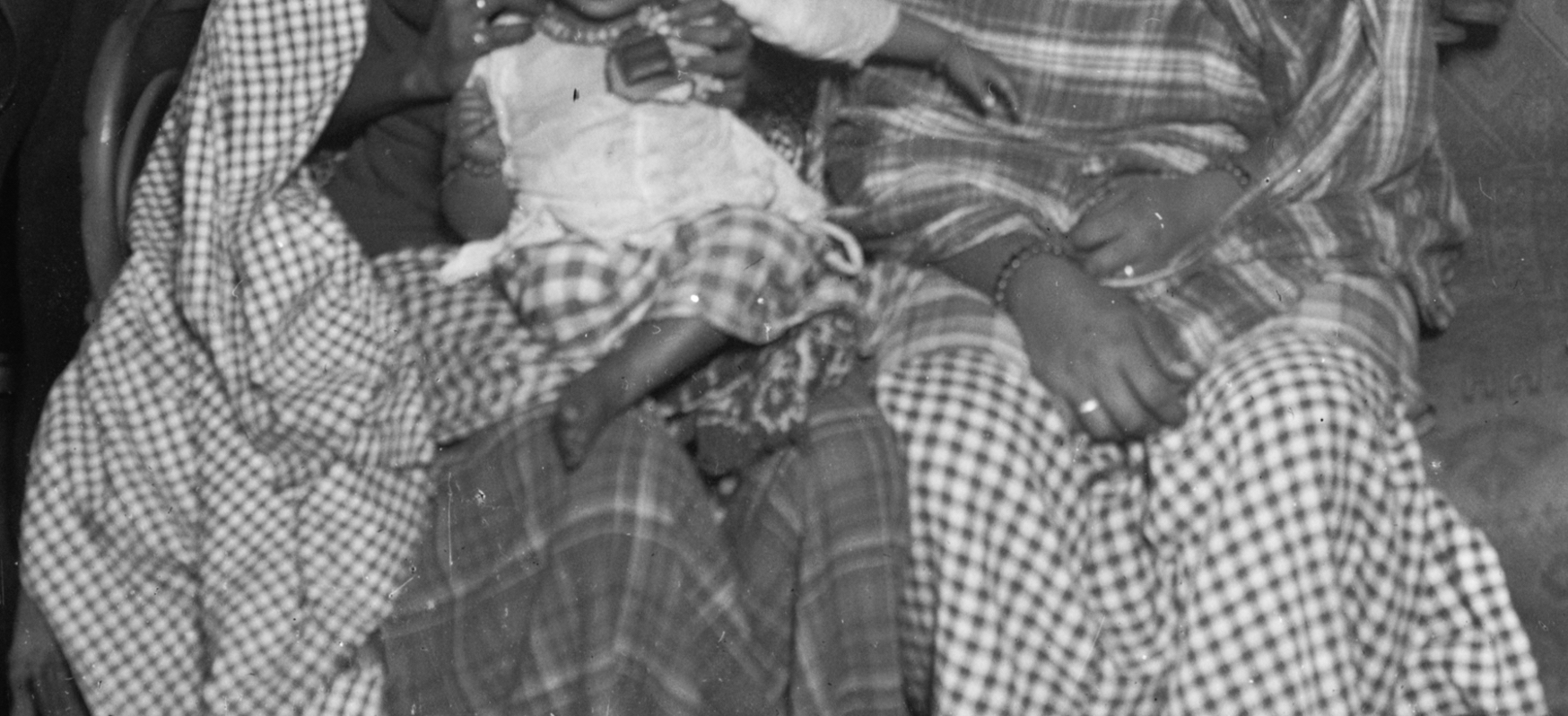 © Chicago History Museum
© Chicago History MuseumDeparting from Erica Scourti’s concept of Dark Archives (2015), SITAAD engages the shadows cast by colonial archives by invoking Xirsi, a clandestine Somali practice of protection, and experimenting with analogue formats. Testing the concept and limits of opacity, the duo explore their use of cyanotypes and audiocassettes, partially developed through archival research and participatory workshops held in New York City and Minneapolis in 2023.
Through the lens of colonial botany and plantation economies, the cyanotype as a counter archival method is weighed against the ghost of early photographic proccesses which contributed to the racialising logic of colonial policies. In doing so, SITAAD examine the limits of using analogue processes that first ‘rendered’ colonial subjects. Speculating on community-led circulations of colonial archives, they discuss new potentials for institutional collections typically preserved as static repositories with settled narratives.
Afterall: Online issue
Fellowship Announcement
University of Minnesota and Soomaal House of Art (2023-24)
Publish date: August 2023
Award: Hub Residencies
SITAAD was a recipient of 2023-2024 Soomaal House Archive Fellowship with generous support from the Liberal Arts Engagement Hub and Minnesota Transform.
In partnership with Soomaal House of Art and the Immigration History Research Center Archives, SITAAD undertook an archive-focused residency in the summer of 2023, working closely with Kaamil A. Haider, archivist and co-director of Soomaal House of Art.
About the project
Transmigrating Cassettes is a sonic container for SITAAD research interventions on dispersed colonial collections. It instrumentalises the audio cassette as an archival and discursive tool.
The first cassette series examines Augustus F. Sherman’s photography collection of Somali passengers who arrived from French Somaliland to Ellis Island Immigration Station in 1914. With the guidance of Soomaal House of Art, SITAAD will undertake collections research on the seventy-five Somali passengers, who are described in official bureaucratic records as a performing troupe who arrived for exhibition purposes. The troupe’s arrival, performances, detainment, and eventual deportation, are contained in collections across the United States. To engage the public, SITAAD will host workshops and symbolic gatherings in Minneapolis and NYC. The volume is developed with research support and guidance from Kaamil A. Haider, director of Soomaal House Library & Archive Center, and Louis Takács, initiator of the project Let Me Get There: Visualizing immigrants, transnational migrants & U.S. citizens abroad, 1904-1925.
Future iterations of the project will investigate Somali participation in the economies of international colonial exhibitions in new geographies in association with practitioners, communities, collectives, and institutions. The cassettes will map sonic strategies for transmuting colonial histories in the present and coalesces into a symphonic archive on Somali performing troupes and their itinerant trajectories across the Atlantic, Mediterranean and Indian Ocean.
In 2024, SITAAD will endevour to make accessible Vol.1 tapes through public presentations and closed circulations.
University of Minnesota: read more
SITAAD was a recipient of 2023-2024 Soomaal House Archive Fellowship with generous support from the Liberal Arts Engagement Hub and Minnesota Transform.
In partnership with Soomaal House of Art and the Immigration History Research Center Archives, SITAAD undertook an archive-focused residency in the summer of 2023, working closely with Kaamil A. Haider, archivist and co-director of Soomaal House of Art.
About the project
Transmigrating Cassettes is a sonic container for SITAAD research interventions on dispersed colonial collections. It instrumentalises the audio cassette as an archival and discursive tool.
The first cassette series examines Augustus F. Sherman’s photography collection of Somali passengers who arrived from French Somaliland to Ellis Island Immigration Station in 1914. With the guidance of Soomaal House of Art, SITAAD will undertake collections research on the seventy-five Somali passengers, who are described in official bureaucratic records as a performing troupe who arrived for exhibition purposes. The troupe’s arrival, performances, detainment, and eventual deportation, are contained in collections across the United States. To engage the public, SITAAD will host workshops and symbolic gatherings in Minneapolis and NYC. The volume is developed with research support and guidance from Kaamil A. Haider, director of Soomaal House Library & Archive Center, and Louis Takács, initiator of the project Let Me Get There: Visualizing immigrants, transnational migrants & U.S. citizens abroad, 1904-1925.
Future iterations of the project will investigate Somali participation in the economies of international colonial exhibitions in new geographies in association with practitioners, communities, collectives, and institutions. The cassettes will map sonic strategies for transmuting colonial histories in the present and coalesces into a symphonic archive on Somali performing troupes and their itinerant trajectories across the Atlantic, Mediterranean and Indian Ocean.
In 2024, SITAAD will endevour to make accessible Vol.1 tapes through public presentations and closed circulations.
University of Minnesota: read more
Transmigrating Cassettes Visualiser © SITAAD Archive
Residency Announcement: Neither on Land nor at Sea Cittadellarte – Fondazione Pistoletto
Publish date: May 2023
Artistic Residency: Biella, Italy
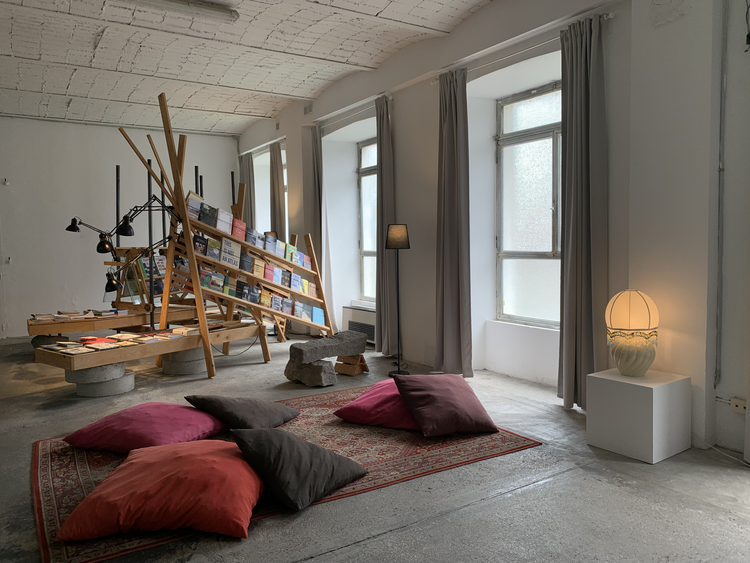
© Chiara Cartuccia, Neither on Land nor at Sea, UNIDEE Residency Programs, Cittadellarte - Fondazione Pistoletto.
SITAAD participates in residency Neither on Land nor at Sea to develop their ongoing research and practice exploring Mediterranean complexities and geographical thinking, with attention to Somali mobilities.
Neither on Land nor at Sea invites to meander around unreducible complications and on shifting grounds, to explore together ways in which geography is historically, socially, and politically produced. The project pluralises Mediterranean concepts/spaces as sites of worldmaking and experimentation in communal living. To do so, it adopts un-grounded geographies and colliding historicities as meeting places, in which to congregate to elaborate on the role played by situated practices and shared processes in the promotion of social transformations, towards epistemic justice.
Neither on Land nor at Sea, research project by UNIDEE Residency Programs at Cittadellarte – Fondazione Pistoletto initiated by Chiara Cartuccia.
Neither Land nor at Sea: read more
Neither on Land nor at Sea invites to meander around unreducible complications and on shifting grounds, to explore together ways in which geography is historically, socially, and politically produced. The project pluralises Mediterranean concepts/spaces as sites of worldmaking and experimentation in communal living. To do so, it adopts un-grounded geographies and colliding historicities as meeting places, in which to congregate to elaborate on the role played by situated practices and shared processes in the promotion of social transformations, towards epistemic justice.
Neither on Land nor at Sea, research project by UNIDEE Residency Programs at Cittadellarte – Fondazione Pistoletto initiated by Chiara Cartuccia.
Neither Land nor at Sea: read more
